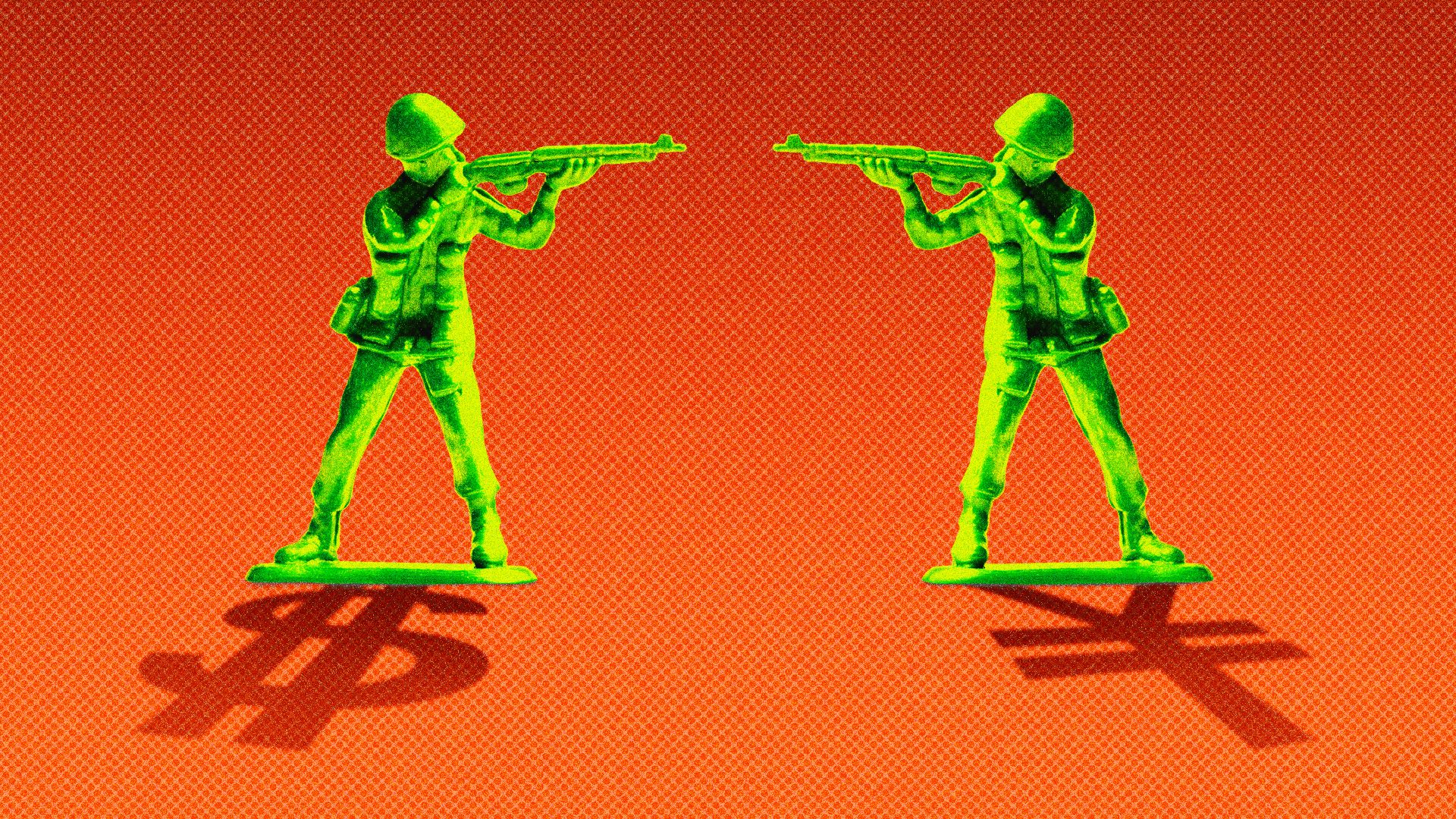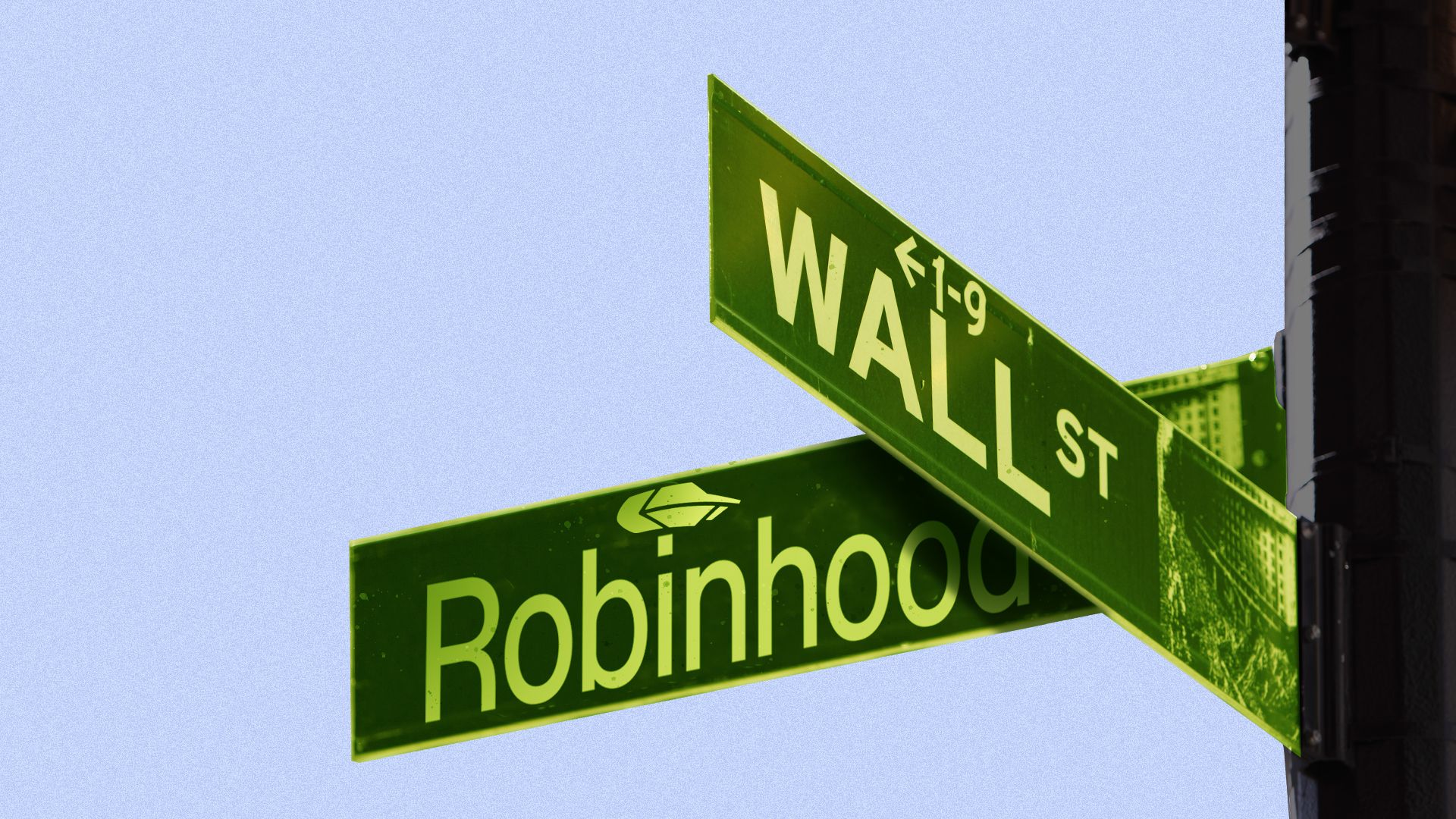|
||
| Axios Markets | ||
| By Madison Mills · Aug 01, 2025 | ||
|
President Trump unleashed a sweeping new list of tariffs yesterday, raising levies on Canada to 35% and setting the baseline rate for most nations to 10%.
It wouldn't be the Markets newsletter if I didn't have to rewrite it because of more breaking news on tariffs! Let's get into it. All in 1,280 words in 5 minutes. |
||
| 1 big thing: Winners and losers in the trade war | ||
| By Madison Mills | ||

|
||
|
Illustration: Shoshana Gordon/Axios |
||
|
Tariff deadline day is here. The administration last night published a list of about 70 countries and their respective tariff rates, set to go into effect next Thursday. Why it matters: As stocks continue hitting record highs, beneath the surface, tariff policy is reshaping market winners and losers. Investors looking to beat the index are racing to determine where the pain and opportunity will hit. What they're saying: "I think there's a disconnect between the superlative performance of the US equity market and the mediocrity of the American economy," says David Kelly, chief global strategist at JPMorgan, who thinks tariff-driven inflation has yet to fully hit consumers.
Zoom in: Based on several Axios Markets interviews, here are the winners and losers of the trade war.
Between the lines: The winners are driven by the outperformance of AI and wealthier consumers holding up spending. Underperformers could be revealed by weakness among lower-income consumers and sector-specific tariff effects. Case in point: Consumer discretionary is split. Luxury brands and travel companies are holding up, while discount retailers could struggle to pass higher costs on to stretched customers.
Zoom out: Investors would be smart to zoom out and look at "valuations of the different asset classes and different broad sectors in their portfolio and just ask themselves, does this make sense," Kelly says.
Be smart: Investors would also be smart to look at the administration's U-turn on copper tariffs as a market case study.
The bottom line: The market may be rallying, but trade policy drives sector-specific price action. That could determine market leadership for the year. |
||
|
|
||
| 2. Robinhood CEO: Human traders safe from AI | ||
| By Madison Mills | ||

|
||
|
Illustration: Sarah Grillo/Axios |
||
|
If you want a job safe from AI consider becoming a trader. Robinhood's CEO tells Axios human traders will not be replaced by AI in the foreseeable future. Why it matters: As some tech executives say AI could unleash a white-collar bloodbath, and AI firms are racing to disrupt financial services, Robinhood's chief executive is doubling down on the enjoyment people get from trading. What they're saying: "Traders legitimately enjoy trading…I think humans will be calling the shots," Robinhood CEO Vlad Tenev tells Axios.
The big picture: AI providers are racing to get into financial services, which is expected to be among the top industries disrupted by AI.
Be smart: "The best analysts often are the people that use AI the most and so they're kind of getting an edge," says George Sivulka, CEO of Hebbia, an AI platform for finance.
Zoom in: Robinhood already offers its own suite of AI tools to investors.
The bottom line: While the human element may remain vital, AI tools, like the ones that Robinhood offers, could define the next generation of investing. |
||
|
|
||
|
A message from Axios |
||
| Break through the noise with Axios | ||
/2024/03/14/1710438322093.gif)
|
||
|
Reach execs and business leaders with Axios. We'll help you tell your story in the right way:
|
||
| 3. Why Big Tech may have a $4 trillion problem | ||
| By Madison Mills | ||
 Data: YCharts. Chart: Axios Visuals Microsoft joined the $4 trillion club this week alongside Nvidia. Apple, Amazon, Alphabet and Meta could be next. Why it matters: With all but one member of the Magnificent 7 racing toward this record-high valuation, investors are growing uneasy about just how far Big Tech can run and at what cost. Driving the news: Meta and Microsoft reported blowout quarterly earnings results late Wednesday, exceeding Wall Street's best estimates for earnings growth and guidance.
Be smart: It can be hard to visualize $4 trillion, but let's give it a try.
What they're saying: "These massive results seen by Microsoft and Meta further validate the use cases and unprecedented spending trajectory for the AI Revolution," Dan Ives of Wedbush Securities writes in a note to clients.
Zoom in: With Microsoft trading at 40 times forward earnings, some investors are ringing alarm bells, saying the stock is too expensive based on its earnings trajectory.
Yes, but: Overvalued stocks are often the first to correct in a market downturn, David Kelly of JPMorgan tells Axios.
The bottom line: Valuation concerns are still not stopping investors from pushing other Big Tech names closer to the $4 trillion club.
|
||
|
|
||
|
A MESSAGE FROM AXIOS |
||
| Break through the noise with Axios | ||
/2024/03/14/1710438322093.gif)
|
||
|
Reach execs and business leaders with Axios. We'll help you tell your story in the right way:
|
||
|
|

